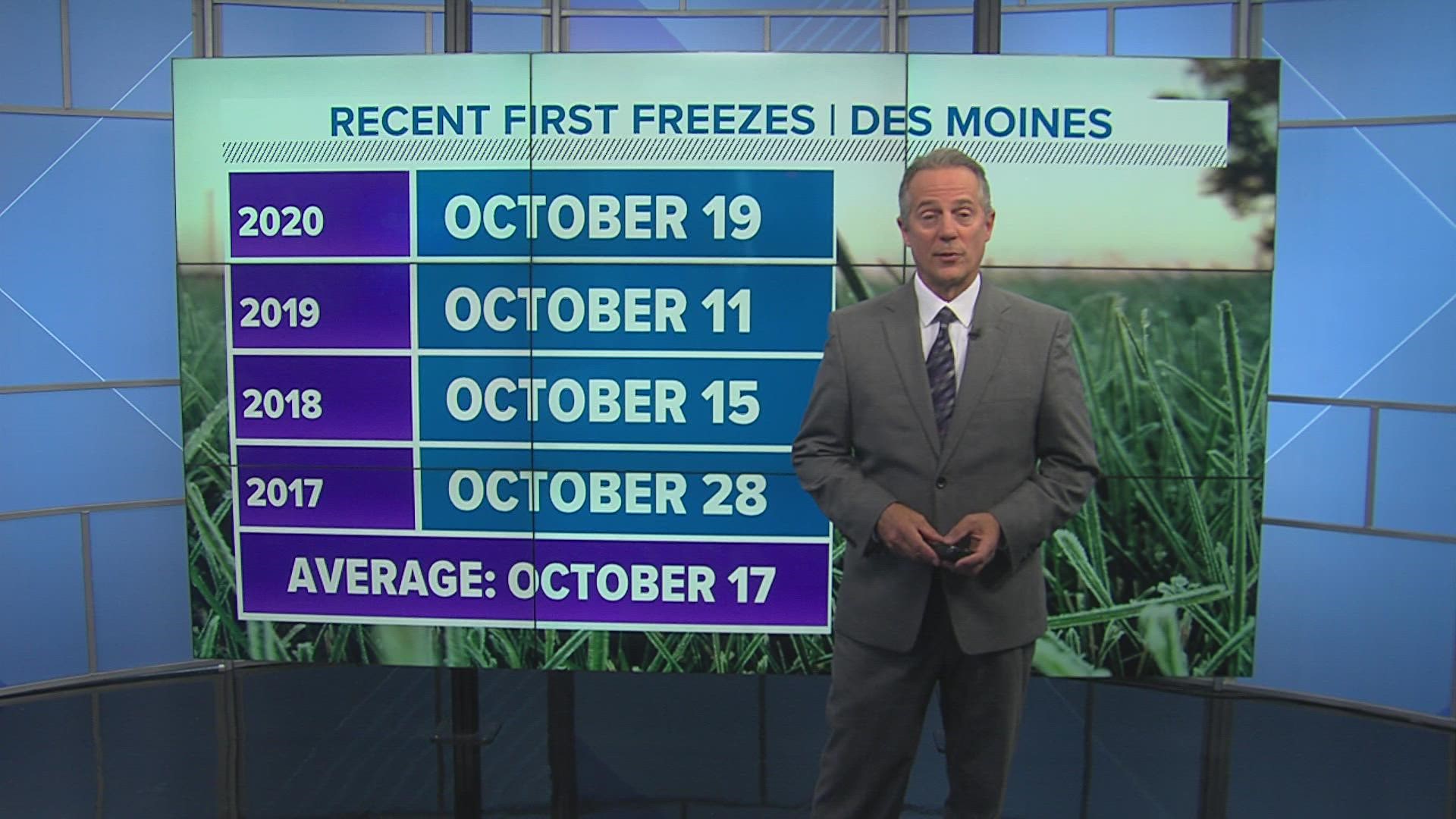DES MOINES, Iowa — The terms "frost" and "freeze" are thrown around pretty regularly during the fall, winter, and spring months.
Although the words are sometimes used interchangeably, there's actually a big difference between them.
A frost can occur anytime temperatures drop to 37° or lower.
Most often, frosts are associated with clear skies and calm winds overnight and during the early morning hours on a cold day.
On the other hand, a freeze only occurs when surface temperatures drop below 32°, or the point at which liquid water freezes.
This means frost can occur without freezing temperatures!
It is important to remember temperatures are typically measured six feet above the ground. While it may be above freezing there, it is normally still colder at the surface.
Freezing temperatures can quickly damage plants because the water inside a plant's cells begins to solidify as atmospheric temperatures fall.
The colder it gets outside, the more harmful it can be to unprotected plants and vegetation.
There is also a term known as a "hard freeze," which refers to a point in which temperatures drop to 28° or below for an extended period of time.
Sometimes a hard freeze is known as a killing freeze.
RELATED: Don't rake those leaves this fall!
For Des Moines, the average first freeze (32° or below) in the fall occurs on Oct. 17.
In 2020, Des Moines hit 32° for the first time on Oct. 16.
The first freezes in both 2018 and 2019 also occurred in mid-October, but in 2017, the first freeze in Des Moines held off until just a few days prior to Halloween.
Here are the frost and freeze records for fall in Des Moines:
- Earliest frost: September 13, 1902
- Latest frost: November 7, 1947
- Earliest freeze (32°): September 22, 1995
- Latest freeze (32°): November 11, 1882
- Earliest hard freeze (28°): September 28, 1992
- Latest hard freeze (28°): November 26, 2009
Watch more Local 5 Weather Lab segments on YouTube

